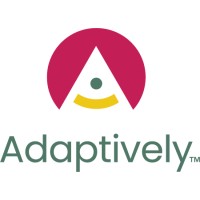5 Skills Students Need for College Readiness
You’re implementing the best programs, hiring the brightest teachers, and buying well-developed curricula. As a result, your students are successful. Grades are up, and graduation rates are at an all-time high. But are your students really ready for college?
College readiness is about more than earning a stellar GPA from a great high school.
College-bound students face a whole new set of challenges. They have to manage their time better, adapt to their new schedules, and interact with new groups of people. On the academic end, classes are more challenging, papers are longer, and overall standards are higher.
But if they make it to graduation day, college graduates will reap the rewards. They are likely to earn more money than those without college degrees. They are less likely to be unemployed. They are even more likely to own their own home.
High schools and educators can do a lot to help equip students beyond academics to prepare for college. Adaptively has put together a list of five college-readiness skills to help your students prepare for the next chapter of their lives.
Collaboration
Knowing how to collaborate well with others benefits students throughout their lives. Whether working with colleagues or solving problems with roommates, collaboration is a skill that educators can encourage through various classroom activities.
From pairing students off into small groups of 3-5 for a research project to splitting the class into two large groups for a healthy literary debate, in college and life, students will need to master the skills that foster collaboration. These skills include active listening, task delegation, and personal responsibility.
Time Management
In high school, students’ schedules are primarily planned for them. They spend 6-8 hours in school, maybe engage in an extracurricular activity, and then go home to do their homework. In college, however, class schedules change daily, and more responsibility is deferred to the students to coordinate their time.
On top of the time commitments needed for class schedules and studies, many college students also must juggle part-time jobs or leadership roles on campus. If young adults don’t learn to schedule and plan effectively, they may encounter exhaustion or disappointing academic performance.
How can schools and educators help students get ahead in learning time management? First, introduce high-school students to time-organization tools, and encourage their use. Whether it’s a paper planner or a phone app, they will create a great life habit when they develop the discipline to plan projects, work, and other time commitments.
Grit
Maybe it’s more of a personality quality than a skill. But, however you classify grit, it seems those who possess it experience greater perceived life satisfaction.
The concept was popularized by the work of author Angela Duckwork and is described as “passion and perseverance for long-term goals.”
When someone develops grit, they can keep working toward their goals despite setbacks. This trait is essential for high-school students to build, as college life will be more challenging than their high-school days. In college, they will need to persevere through problem-solving more complex peer issues, managing relationships with instructors, and completing more difficult coursework to get to graduation day.
To encourage your students to build grit, help them brainstorm a list of successful people like Olympic athletes, business leaders, or artists they admire. Then, discuss with them how those they look up to arrived at where they are today. Did they keep a strict schedule? Did they persevere despite setbacks? Finally, help your students discover their long-term goals, foresee challenges that may arise, and develop a gritty plan to reach them.
Written Communication
Whatever a student’s career ambitions, they need excellent written communication skills. As college professors often assess their students’ subject mastery through research papers and written tests, students must be able to write clear and concise answers to questions. Moreover, they should have good organization and self-editing skills to deliver their written ideas effectively.
Strong writing skills will benefit students throughout their work lives. Whether they need to write an email, press release, or letter of appreciation to their employees, mastering written communication will help them stand out in the workplace.
To develop their writing skills, high-school students should receive plenty of writing practice for different purposes. In addition to assigning essays and book reports, they can practice writing professional emails or cover letters. Provide your students with good feedback to help them develop their writing.
Research Skills
In college, it’s not necessarily what you know—it’s what you can find out! In higher education, there is less emphasis on memorizing facts and more focus on analyzing and synthesizing information. Today’s generation is well-versed in using technology to find quick information, but higher-level cognitive skills are equally crucial to college and life success.
For example, can your students arrive at different conclusions and back different viewpoints? Do they know multiple sources to find the answers they seek, and can they read several studies and summarize what they learned?
High-school educators can help students develop more profound thinking skills through research and robust classroom discussions to prepare them for the academic intensity of college studies.
Are you seeking extra support for your school’s students?
Adaptively’s supplemental education platform can give your students the resources they need to succeed in high school, college, and beyond. For more information, email us today at info@adaptivelyeducation.com or contact us through our website.


